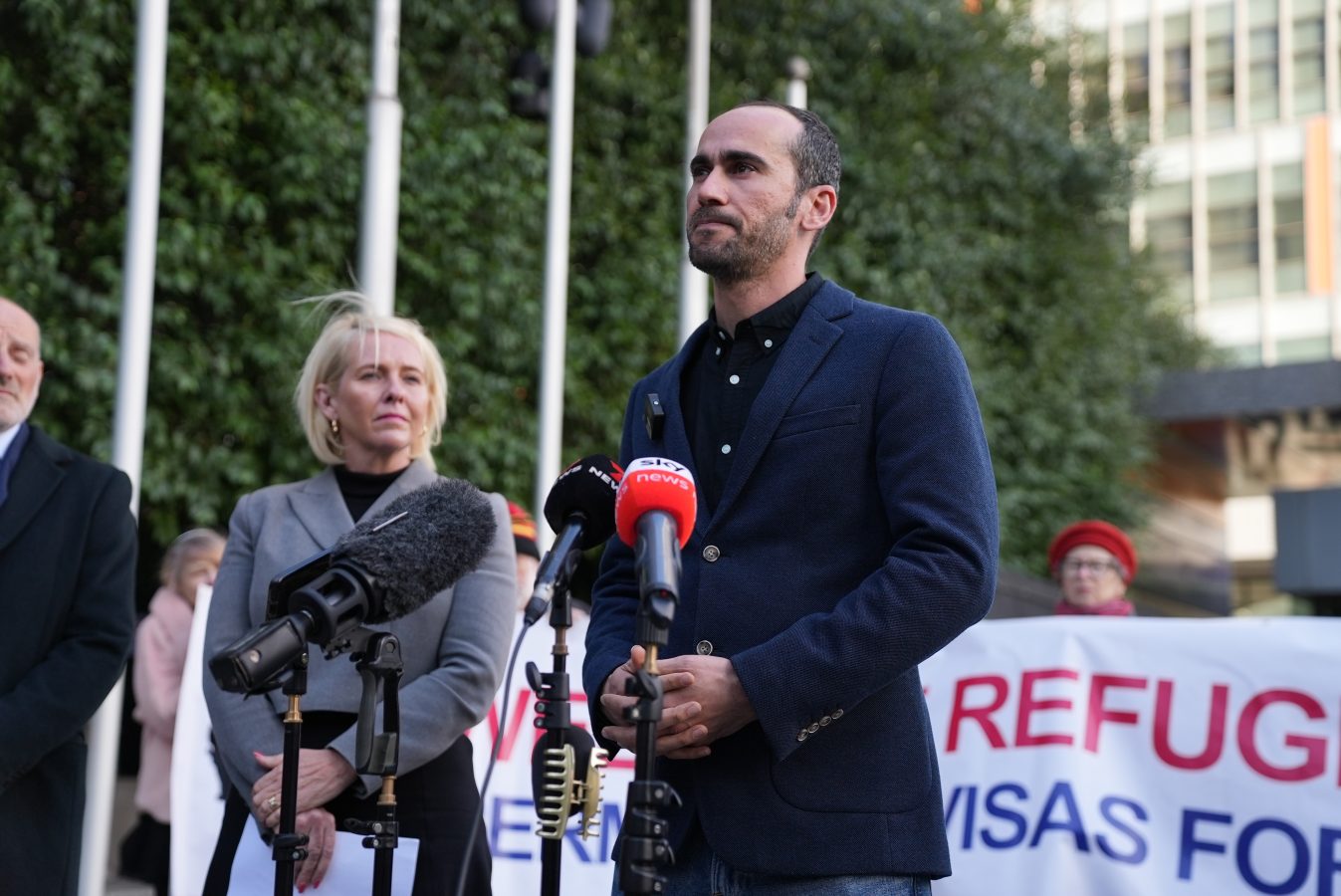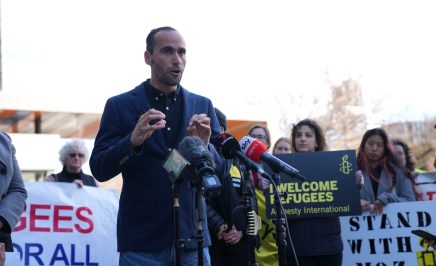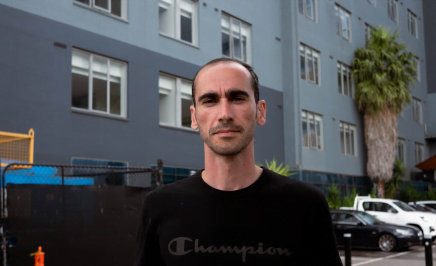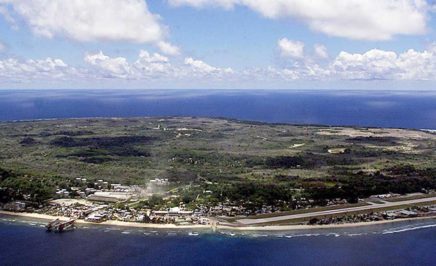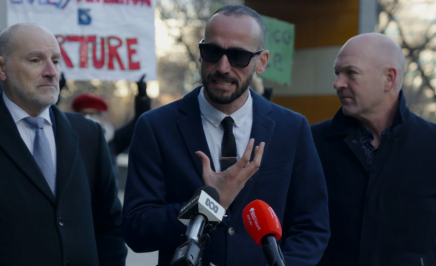The Federal Court has today found the Australian Government did in fact have the legislative power to detain refugee Mostafa (Moz) Azimitabar in two Melbourne-based hotels operating as Alternative Places of Detention (APODs) under Australia’s Migration Act 1958 (Cth).
In a departure from the norms of judgments in the Federal Court, Justice Bernard Murphy emphasised that the lawfulness of Moz’s detention must not be confused with the morality of the practice.
Justice Murphy told the court:
“I can only wonder at the lack of thought, indeed the lack of care and humanity, in detaining a person with psychiatric and psychological problems in the hotels for over 14 months,” Murphy said. “Primarily, in hotel rooms with windows that only opened 10 centimeters and for most of the time, without access to an outdoor area or to breath fresh air or feel the sun on his face.”
“Anyone who endured even two weeks of hotel quarantine during the covid-19 pandemic, would surely understand how difficult it must have been. As a matter of ordinary human decency, the applicant should not have been detained for such a period of time in those conditions.”
“The decision in this case does not turn on the humanity of the applicant’s detention, it is about whether the minister had power under the act to approve hotels as places of immigration detention. The minister had, and has, the power to do so.”
In the wake of the judgment, Mostafa (Moz) Azimitabar says:
“This judgment has failed my hopes to hold the Government accountable for what they did to us in those hotel prisons.”
“I wanted the Court’s decision to help put a stop to the immoral and unethical detention and treatment of people like me and many others who have come to Australia for protection but instead have suffered. I will not give up the fight for our human rights.”
Michael Bradley, Managing Partner at Marque Lawyers, representing Azimitabar, says:
“We are disappointed that today’s judgment did not find that the Government did not have the legislative power to detain Moz in the Mantra and Park Hotels under the Migration Act; it is a hard day for our client, and we will seek instructions on the next steps, including a possible appeal.”
“Detention – holding people against their will – is one of the most extreme powers that the government has. It is entirely unsatisfactory that the government has the discretionary power, based solely on an implication in the statute, to turn any site into an ‘alternative place of detention’, even if that site has no access to sunlight, fresh air, or appropriate medical care.”
Samantha Klintworth, Amnesty International National Director says:
“Moz is among thousands of recognised refugees and people seeking asylum who have suffered under our government’s policy of spending billions of dollars to hold vulnerable people in immigration detention centres – here in Australia and offshore – for no purpose except to discourage them, and others, from exercising their right to seek refuge and safety here.”
“These policies harm people profoundly, and shame us all as Australians. We must see a coherent and humane plan for the future of people recognised as refugees, including permanent changes under the Migration Act to ensure this never happens again.”
Background:
Azimitabar was detained for 14 months in the Mantra and Park hotels, where he was heavily guarded and often stayed in his room for up to 23 hours a day. He had no access to the outside world or to the proper medical treatment that he was brought to Australia to receive.
Azimitabar is among thousands of refugees and people seeking asylum who have been kept in harmful and arbitrary conditions in APODs and Australia’s broader network of immigration detention centres without any resettlement plan.
Azimitabar was released from detention in Australia on 21 January 2021. He is living and working in Sydney on a bridging visa for which he must reapply every six months. He is allowed to work but does not have the right to study.
The conditions of Azimitabar’s release continue to cause harm by trapping him in limbo, unable to study or move on with his life. Azimitabar is among more than 1,300 refugees in Australia who are still forced to live in this way without a permanent resettlement solution.
“The Australian Government tries to limit my freedom, but they cannot limit my dreams. And so I will continue to fight for my freedom and human rights,” said Azimitabar.
